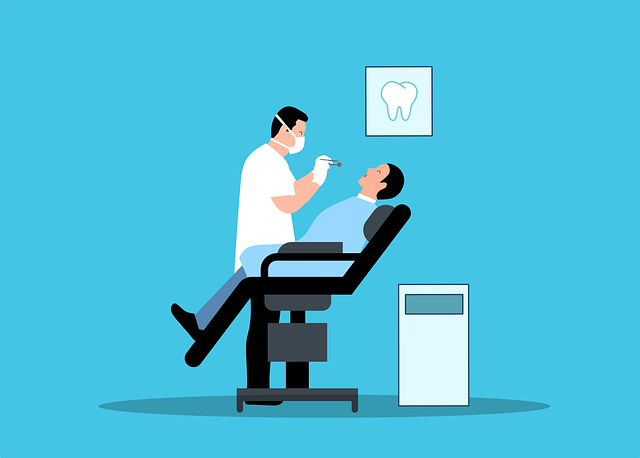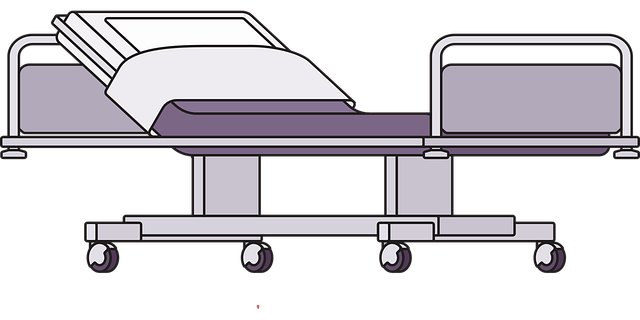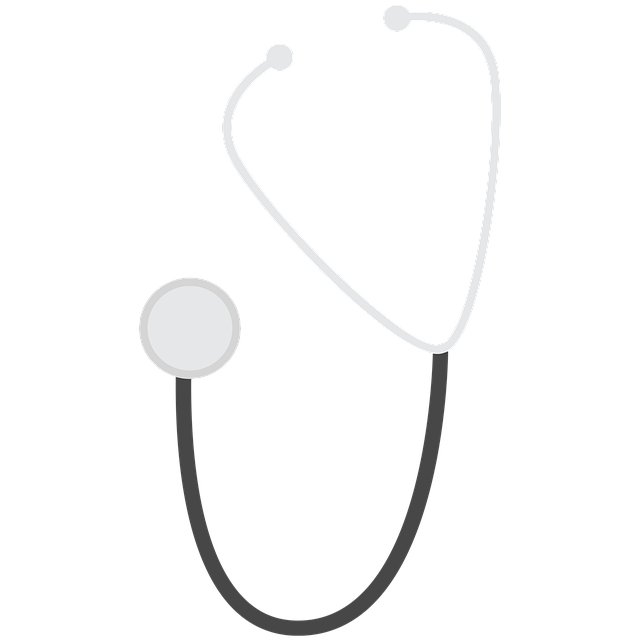Regenerative imaging and advanced imaging technology, including non-invasive techniques like MRI and ultrasound, are transforming diagnostic services in regenerative medicine. These innovative tools provide healthcare professionals with unprecedented detail about tissue microstructure and functionality, enabling personalized treatment plans. By minimizing risks associated with traditional invasive methods, these precision imaging techniques enhance therapeutic outcomes, improve patient experiences, and unlock the full potential of regenerative medicine through tailored interventions.
In today’s digital era, precision diagnostics are revolutionizing regenerative medicine, fostering effective recovery. This article explores the transformative power of regenerative imaging, delving into cutting-edge advanced imaging technology that offers unprecedented insights. From non-invasive diagnostics to precision imaging techniques, these tools are reshaping patient care. We examine how integrating medical imaging tools provides comprehensive regenerative diagnostic services, enhancing the effectiveness of imaging for regenerative treatment.
- Understanding Regenerative Imaging: Unlocking the Potential of Advanced Technology
- Diagnostic Tools in Regenerative Medicine: A Game-Changer for Effective Recovery
- The Power of Non-Invasive Diagnostics: Safety and Accuracy in Patient Care
- Precision Imaging Techniques: Enhancing Treatment Outcomes with Detailed Visuals
- Integrating Medical Imaging Tools: Comprehensive Regenerative Diagnostic Services
Understanding Regenerative Imaging: Unlocking the Potential of Advanced Technology

Regenerative imaging is revolutionizing the landscape of regenerative medicine by providing advanced imaging technology that offers unprecedented precision in diagnostics and treatment planning. These cutting-edge diagnostic tools in regenerative medicine go beyond conventional medical imaging, enabling doctors to visualize and assess the microstructure and functionality of tissues at a cellular level. With non-invasive techniques like magnetic resonance imaging (MRI), ultrasound, and optical microscopy, healthcare professionals can now detect subtle changes in tissue regeneration, track cell migration, and monitor the progress of regenerative treatments with remarkable accuracy.
Precision imaging plays a pivotal role in tailoring regenerative therapies to individual patients. By utilizing these advanced medical imaging tools, doctors can identify specific areas requiring intervention, predict treatment outcomes, and make informed decisions regarding the most suitable regenerative diagnostic services for each unique case. This level of detail and understanding unlocks the full potential of regenerative medicine, ensuring that treatments are not only effective but also optimized for each patient’s specific needs.
Diagnostic Tools in Regenerative Medicine: A Game-Changer for Effective Recovery

In the realm of regenerative medicine, diagnostic tools have evolved to become a game-changer in promoting effective recovery. Advanced imaging technology offers a non-invasive approach, enabling precise evaluation of damaged tissues and organs. This precision is crucial for tailoring regenerative treatments, ensuring that each patient receives personalized care. With the use of cutting-edge medical imaging tools, healthcare professionals can now access detailed information about the body’s intricate structures, facilitating more accurate diagnoses and enhanced therapeutic outcomes.
Regenerative imaging goes beyond traditional diagnostic methods, providing a deeper understanding of tissue regeneration potential. Non-invasive diagnostics allow patients to avoid the discomfort and risks associated with invasive procedures, making it a preferred choice for initial assessments. These advanced tools enable healthcare providers to offer regenerative diagnostic services, ultimately streamlining the path to effective recovery and improving overall patient experiences.
The Power of Non-Invasive Diagnostics: Safety and Accuracy in Patient Care

In the realm of regenerative medicine, non-invasive diagnostics have emerged as powerful allies in promoting effective recovery and precision treatments. Traditional diagnostic methods often involve invasive procedures that carry risks and discomfort for patients. However, advanced imaging technology offers a game-changing approach, providing safe and accurate assessments without causing harm. This is particularly crucial in regenerative diagnostic services, where the goal is to stimulate healing and restore function while minimizing patient risk.
Regenerative imaging employs cutting-edge medical imaging tools, such as high-resolution MRI, ultrasound, and CT scans, to create detailed visualizations of damaged tissues and organs. These diagnostic tools in regenerative medicine enable healthcare professionals to pinpoint specific areas requiring treatment, ensuring that interventions are targeted and efficient. With precision imaging, medical experts can monitor patient progress, assess treatment efficacy, and make informed adjustments, ultimately leading to better outcomes for those undergoing regenerative treatments.
Precision Imaging Techniques: Enhancing Treatment Outcomes with Detailed Visuals

Precision imaging techniques are transforming the landscape of regenerative medicine by providing detailed visuals that enhance treatment outcomes. Advanced imaging technology, such as regenerative imaging and non-invasive diagnostics, offers a wealth of information about the body’s intricate structures and functions. These diagnostic tools in regenerative medicine go beyond traditional medical imaging methods, enabling healthcare professionals to pinpoint precise areas requiring intervention. With high-resolution images, specialists can effectively plan and execute regenerative treatments, ensuring optimal results.
The integration of precision imaging into regenerative diagnostic services allows for more targeted and personalized care. Medical imaging tools capable of capturing subtle changes in tissue structure and function enable early detection of potential issues. This proactive approach not only improves overall treatment efficacy but also minimizes risks associated with invasive procedures. By leveraging the power of detailed visuals, regenerative medicine is taking a significant step forward in its mission to restore and enhance natural healing processes.
Integrating Medical Imaging Tools: Comprehensive Regenerative Diagnostic Services

Integrating Medical Imaging Tools plays a pivotal role in delivering Comprehensive Regenerative Diagnostic Services. Advanced imaging technology, such as magnetic resonance imaging (MRI), computed tomography (CT) scans, and ultrasound, is transforming the landscape of regenerative medicine. These non-invasive diagnostics allow for precise identification of tissue damage, inflammation, and other factors hindering recovery, enabling tailored regenerative treatments.
Precision imaging ensures that every patient receives personalized care. Medical Imaging Tools facilitate the evaluation of bone density, muscle strength, and organ functionality, providing critical insights into the body’s healing process. This data guides clinicians in selecting optimal regenerative therapies, including stem cell treatments, tissue engineering, and advanced biostimulation techniques. By leveraging these diagnostic tools, healthcare professionals can enhance treatment outcomes and accelerate recovery for patients undergoing regenerative interventions.
In conclusion, the integration of advanced imaging technology, particularly in the field of regenerative medicine, is a game-changer when it comes to effective recovery. By leveraging diagnostic tools like non-invasive diagnostics and precision imaging techniques, healthcare providers can now offer comprehensive regenerative diagnostic services. These innovative approaches enable more accurate treatment planning, enhance patient safety, and ultimately lead to improved outcomes for those seeking regenerative therapies. Embracing these cutting-edge technologies is a crucial step towards revolutionizing the landscape of medical care.
